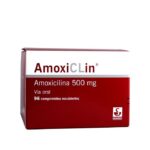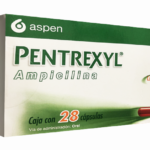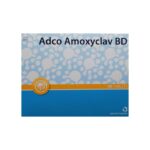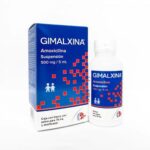Maxibiotic 500: Uses, Dosage, Side Effects, Interactions
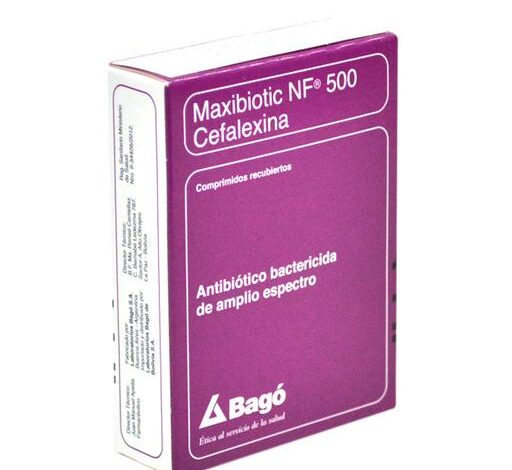
Maxibiotic 500 is a brand of Cephalexin, an antibiotic that belongs to the family of medications known as cephalosporins. Maxibiotic 500 is used to treat certain types of bacterial infections. Cephalexin is most often used to treat infections of the throat, skin, ear, bladder, respiratory tract, and bone. It works by killing the bacteria causing the infection.
How should I use Maxibiotic 500?
The recommended adult dose of cephalexin ranges from 250 mg to 1,000 mg 4 times daily. It can be taken with food or on an empty stomach.
The usual dose of cephalexin for children is based on body weight. The recommended dose is 25 mg to 50 mg per kilogram of body weight each day, divided into 4 equal doses.
Many things can affect the dose of a medication that a person needs, such as body weight, other medical conditions, and other medications. If your doctor has recommended a dose different from the ones listed here, do not change the way that you are taking the medication without consulting your doctor.
Although it may be absorbed more quickly if it is taken on an empty stomach, Maxibiotic 500 may be taken with food or on an empty stomach. The overall effect is not changed by taking it with food.
The liquid form of this medication should be measured accurately with a medication spoon or oral syringe, as these are more accurate than household measuring spoons. Shake the bottle of medication well before measuring each dose.
Finish all of this medication, even if you start to feel better. This will reduce the chance of the infection returning.
It is important to take this medication exactly as prescribed by your doctor. If you miss a dose, take it as soon as possible and continue with your regular schedule. If it is almost time for your next dose, skip the missed dose and continue with your regular dosing schedule. Do not take a double dose to make up for a missed one. If you are not sure what to do after missing a dose, contact your doctor or pharmacist for advice.
Store the liquid form of this medication in the refrigerator for up to 14 days. Do not freeze. The tablets should be stored at room temperature, protected from light and moisture. Keep this medication out of the reach of children.
Do not dispose of medications in wastewater (e.g. down the sink or in the toilet) or in household garbage. Ask your pharmacist how to dispose of medications that are no longer needed or have expired.
Who should NOT take Maxibiotic 500?
Do not take this medication if you:
• are allergic to cephalexin, or any ingredients of the medication
• are allergic to any other cephalosporin antibiotics
What are the side effects of Maxibiotic 500?
The following side effects have been reported by at least 1% of people taking Maxibiotic 500. Many of these side effects can be managed, and some may go away on their own over time.
Contact your doctor if you experience these side effects and they are severe or bothersome. Your pharmacist may be able to advise you on managing side effects.
• agitation
• diaper rash
• dizziness
• fatigue
• headache
• mild diarrhea
• mild stomach cramps
• nausea
• vaginal itching or discharge
• vomiting
Although most of these side effects listed below don’t happen very often, they could lead to serious problems if you do not check with your doctor or seek medical attention.
Check with your doctor as soon as possible if any of the following side effects occur:
• abdominal tenderness
• behaviour changes in young children
• confusion
• hallucinations (seeing or hearing things that aren’t there)
• hearing loss (young children)
• ringing in the ears
• sensation of spinning
• severe abdominal or stomach cramps and pain
• signs of liver problems (e.g., nausea, vomiting, diarrhea, loss of appetite, weight loss, yellowing of the skin or whites of the eyes, dark urine, pale stools)
• skin rash, itching, redness, or swelling
Stop taking the medication and seek immediate medical attention if any of the following occur:
• convulsions (seizures)
• diarrhea (watery and severe; may also be bloody)
• fever that appears after starting the antibiotic
• signs of a serious allergic reaction (e.g., abdominal cramps, difficulty breathing, nausea and vomiting, or swelling of the face and throat)
• signs of a severe skin reaction (e.g., blistering, peeling, a rash covering a large area of the body, a rash that spreads quickly, or a rash combined with fever or discomfort)
Some people may experience side effects other than those listed. Check with your doctor if you notice any symptom that worries you while you are taking this medication.
Are there any other precautions or warnings for this medication?
Before you begin using a medication, be sure to inform your doctor of any medical conditions or allergies you may have, any medications you are taking, whether you are pregnant or breast-feeding, and any other significant facts about your health. These factors may affect how you should use this medication.
Allergy: Some people who are allergic to penicillin antibiotics also experience allergic reactions to cephalosporins, including Maxibiotic 500. Before you take Maxibiotic 500, tell your doctor about any previous adverse reactions you have had to medications, especially cephalosporins and penicillins. Contact your doctor at once if you experience signs of an allergic reaction, such as skin rash, itching, difficulty breathing, or swelling of the face and throat.
Other hypersensitivity reactions involving the skin and other organs have also been reported with the use of other, similar antibiotics. Stop taking the medication and get immediate medical attention if you have symptoms of a severe allergic reaction, including fever, swollen glands, yellowing of the skin or eyes, or flu-like symptoms with skin rash or blistering.
Antibiotic-associated colitis: This medication, like other antibiotics, may cause a potentially dangerous condition called antibiotic-associated colitis (or pseudomembranous colitis). Symptoms include severe, watery diarrhea that may be bloody. If you notice these symptoms, stop taking Maxibiotic 500 and contact your doctor as soon as possible.
Bacterial resistance: Misuse of an antibiotic such as Maxibiotic 500 may lead to the growth of resistant bacteria that will not be killed by the antibiotic. If this happens, the antibiotic may not work for you in the future. Although you may begin to feel better when you first start taking Maxibiotic 500, you need to take all of the medication exactly as prescribed by your doctor to finish ridding your body of the infection and to prevent resistant bacteria from taking hold. Do not take Maxibiotic 500 or other antibiotics to treat a viral infection such as the common cold; antibiotics do not kill viruses, and using them to treat viral infections can lead to the growth of resistant bacteria.
Kidney function: People with severe kidney problems may require a lower dose of Maxibiotic 500. People with kidney disease or reduced kidney function should discuss with their doctor how this medication may affect their medical condition, how their medical condition may affect the dosing and effectiveness of this medication, and whether any special monitoring is needed.
Liver function: Maxibiotic 500 can cause a decrease in liver function, although this happens only occasionally. People with liver disease or reduced liver function should discuss with their doctor how this medication may affect their medical condition, how their medical condition may affect the dosing and effectiveness of this medication, and whether any special monitoring is needed. If you experience signs of decreasing liver function, such as yellowing of the skin or whites of the eyes, dark urine, or pale stools, contact your doctor as soon as possible.
Overgrowth of organisms: Prolonged or repeated use of Maxibiotic 500 may result in an overgrowth of bacteria or fungi and organisms that are not killed by the medication. This can cause other infections to develop, such as yeast infections.
Pregnancy: This medication should not be used during pregnancy unless the benefits outweigh the risks. If you become pregnant while taking this medication, contact your doctor immediately.
Breast-feeding: This medication passes into breast milk. If you are a breast-feeding mother and are taking Maxibiotic 500, it may affect your baby. Talk to your doctor about whether you should continue breast-feeding.
What other drugs could interact with this medication?
There may be an interaction between Maxibiotic 500 and any of the following:
• BCG
• cholera vaccine
• metformin
• multivitamins with minerals
• sodium picosulfate
• typhoid vaccine
• warfarin
• zinc
If you are taking any of these medications, speak with your doctor or pharmacist. Depending on your specific circumstances, your doctor may want you to:
• stop taking one of the medications,
• change one of the medications to another,
• change how you are taking one or both of the medications, or
• leave everything as is.
An interaction between two medications does not always mean that you must stop taking one of them. Speak to your doctor about how any drug interactions are being managed or should be managed.
Medications other than those listed above may interact with this medication. Tell your doctor or prescriber about all prescription, over-the-counter (non-prescription), and herbal medications you are taking. Also tell them about any supplements you take. Since caffeine, alcohol, the nicotine from cigarettes, or street drugs can affect the action of many medications, you should let your prescriber know if you use them.

